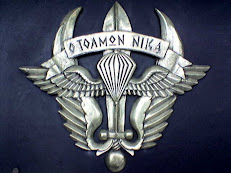President Vladimir Putin on Tuesday signed a treaty to add Ukraine's breakaway region of Crimea to Russia, expanding the country for the first time since the Soviet collapse, despite the threat of Western reprisal.
In a 45-minute speech preceding the accession agreement signing, Putin sent a message to the West that Russia would not dismember Ukraine further, as pro-Russian rallies in Ukraine's southeastern provinces bordering Crimea could have suggested.
He used harsh language to lash out at the U.S. and Europe for what he described as their "might makes right" global policy, accusing them of stoking violent pro-Western riots in Ukraine's capital Kiev, which led to the ouster of the country's president last month.
Putin started the speech in the Kremlin's St. George Hall — a delivery filled with raucous applause — by highlighting Crimea's longstanding close ties to Russia, since the Russian Empire annexed the Crimean Khanate in 1783.
"Literally everything in Crimea is imbued with our common history and pride," Putin told Cabinet and parliament members and three top officials from Crimea. "It is here in ancient Chersonesus that Prince Vladimir was baptized."
The baptism of Vladimir the Great of Kievan Rus in what was part of the Byzantine Empire in 988 is considered the start of the conversion of Russians to Orthodox Christianity.
The Crimean officials present during the speech — Sergei Aksyonov, acting prime minister of Crimea, and Vladimir Konstantinov, speaker of Crimean parliament — are under both U.S. and European Union sanctions for their role in Crimea's secession from Ukraine, which the West has branded as running counter to international law. They took seats in the front row between Russia's second person in the executive chain of command, Prime Minister Dmitry Medvedev, and the third person, Federation Council Speaker Valentina Matviyenko, the latter being under U.S. sanctions for the same reason.
In an apparent attempt to soothe the opposition of native Tatars to the region's new allegiance, Putin said their mother tongue would rank as a state language in Crimea equal to Russian and Ukranian, an upgrade from its status in Ukraine. Tatars suffered a deportation order by Stalin on the grounds that they were not loyal to the Soviet government during World War II. They have since then returned home but remain wary of Russia.
Putin continued by lamenting the handover of Crimea to Ukraine by Soviet leader Nikita Khrushchev in 1954, which was a formality when the Soviet Union was one country. But the breakup of the union left Russia feeling "robbed" of its territory, he said.
Recent History
The president then commented on the protests in Kiev that swept away the government of President of Viktor Yanukovych last month. Putin said he was able to understand peaceful rallies against officials that neglected the lives of ordinary citizens. Regarding the overall depressed economic situation in Ukraine, he said about 3 million Ukrainians worked in Russia last year, earning $20 billion, which constituted 12 percent of Ukraine's gross domestic product.
Going on, Putin reiterated the stance that Russia was unable to tolerate threats to ethnic Russians in Ukraine from "radicals" that, he said, controlled the new government in Kiev. He rejected the accusations from the West that the referendum in Crimea didn't comply with international law.
Putin fired back at the leading Western powers, blaming them for trying to tailor this law to their own needs. He cited NATO's intervention in Serbia and Kosovo, and attacks on Afghanistan, Iraq and Lybia.
"Led by the U.S., our Western partners prefer in their practical politics to be guided not by international law, but by might-makes-right law," Putin said. "They have come to believe that they are chosen and exceptional; and that they have the license to decide the fate of the world; and it is only they that can always be right.
"That's how things went in Yugoslavia … in 1999. It was difficult to believe. I could not believe my eyes, but at the end of the 20th century one of the European capitals came under bombing raids for several weeks, and then a real [military] intervention ensued."
Putin said the West had crossed the line in Ukraine, apparently implying that Western diplomats stoked the protests. As a home to millions of Russians, Ukraine is too important to Moscow, he said.
"If you push a spring too hard, it will bounce back with force at some point," he said. "This should always be remembered."
Putin urged the West to "stop the hysterics" and "Cold-War rhetoric" and accept that Russia is an "independent and active player" in global politics, which has its own national interests.
In reference to Ukraine's potential to join NATO, Putin said, I'd prefer NATO sailors arrive in the port of Sevastopol as our guests, and not that we arrive as their guests.







































